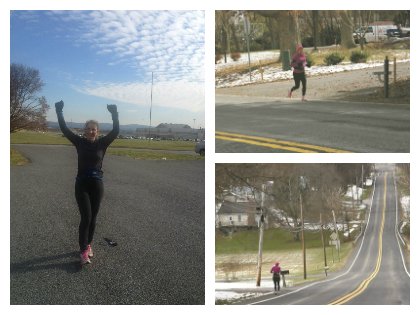BALTIMORE — Lorig Charkoudian believes that reducing recidivism can be accomplished by building strong family relationships. And, as executive director of Community Mediation Maryland, Charkoudian is willing to make a run for it.
On Friday, November 28, 2018 Charkoudian ran 67 miles from Baltimore to Hagerstown to help raise money to fund Re-Entry mediation transportation costs. She invites the community to help with fundraising efforts, which anyone can do by visiting www.reentrymediation.wix.com/run4reentry.
“I was meditating during one of my trips from Hagerstown and it hit me that this is a trip that people need to make for their incarcerated loved ones before they are released,” she said. “Going to visit them and seeing them helps to reduce recidivism and it saves money and also allows for individuals to be accountable for what they’ve done in the past.”
Charkoudian says the run felt like it was a metaphor for the broader work.
The equivalent to nearly three marathons, the run began at Mondawmin Mall near the bus bay at 8 a.m. and ended at the Maryland Institute of Corrections, Hagerstown in the afternoon.
Charkoudian says she is a firm believer in the importance of strong relationships to support successful re-entry and to reduce recidivism.
Re-entry mediation responds to this need by providing an opportunity for an inmate and family members or other support people to meet, with the help of a non-judgmental mediator, before release to have an open, honest, and often difficult dialogue to prepare for the transition back into the community, she said.
Re-entry mediation has been shown to decrease recidivism rates by 10 percent. In Maryland, re-entry mediation has been established in almost every state facility and in a number of local detention centers. Results from program evaluations demonstrate the success of re-entry mediation in improving relationships and supporting a smooth transition to the community, officials said in a news release.
Dubbed, “The Run4Reentry,” Charkoudian, who co-founded Community Mediation Maryland says her trek will raise money for families who are unable to travel the distance to participate in Re-Entry Mediation.
Studies show such mediation has resulted in at least a 10 percent drop in re-incarceration, according to Charkoudian.
“We started collecting data and came to the understanding that mediation really helps because it provides a plan for individuals and their families,” Charkoudian said.
She said the program was created in response to earlier studies that showed strong family involvement as the key to inmates’ success once they’ve been released.
“When I worked at the Baltimore community mediation center, the Maryland Division of Parole and Probation sometimes called us for help when a recently released inmate was having a conflict with the family member,” she said.
Charkoudian says there is pressure from both sides when an inmate returns home. She says that family members often complain: “Here he comes again, out for the tenth time wondering if it’s just a matter of time before they go back and the inmate is thinking that he has nobody.”
It’s because of that, Charkoudian says it can be valuable for an inmate to sit down with the people he or she will live with to work through some of those issues before the inmate is released.
“If the issues are resolved before the inmate gets home, he or she has a better chance of reintegrating into society,” she said.
For these reasons, mediation sessions are offered to inmates and their families within six months to a year of the inmates’ expected release date. Also, follow-up sessions post-release are also available.
As for the successful run, Charkoudian said it was more than worth it.
“With the weather we’ve been having, it makes me not quite as happy about the timing,” she said, with a laugh. “I’ve consulted people who have run marathons and I’ve run in marathons and I’ve been training for this, so I was prepared and it was fun.”
